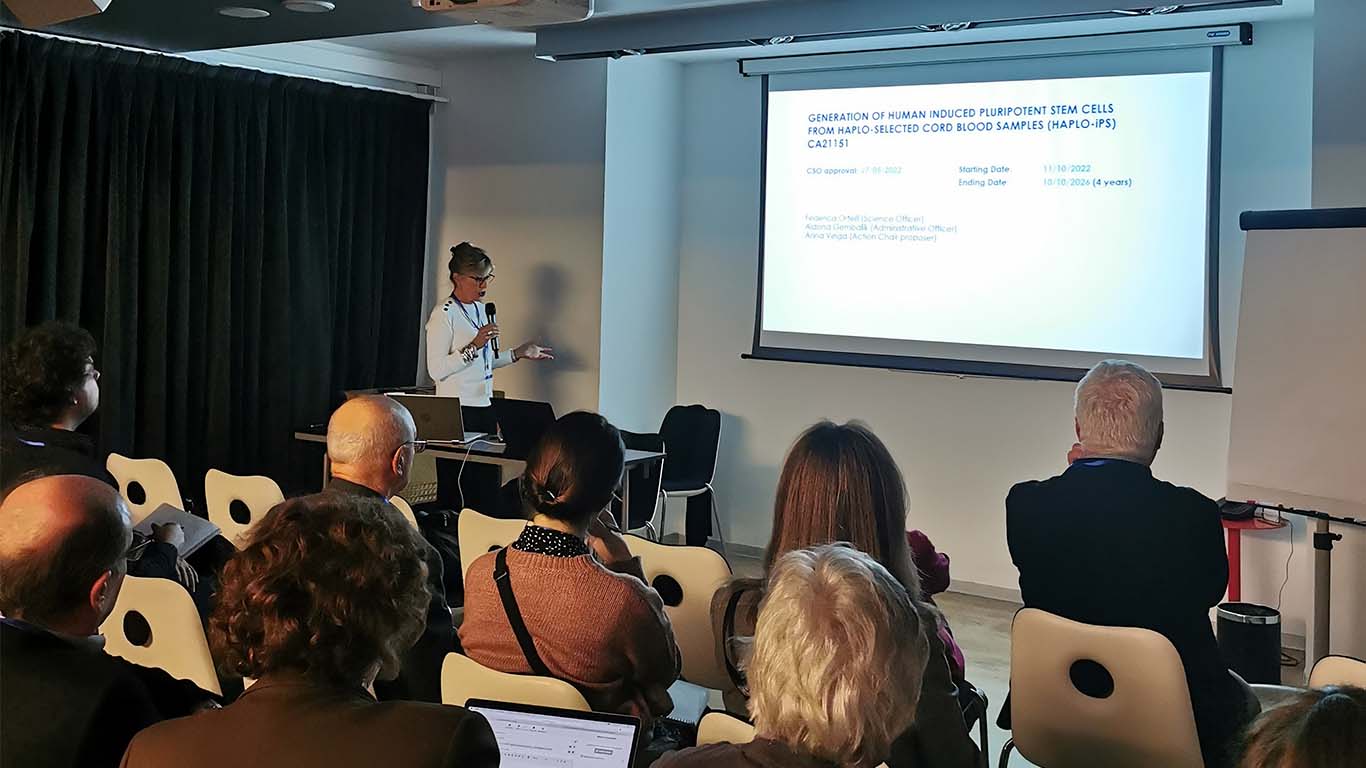The first meeting of the Working Groups of the project GENERATION OF HUMAN INDUCED PLURIPOTENT STEM CELLS FROM HAPLO-SELECTED CORD BLOOD SAMPLES (HAPLO-IPS)
January 25, 2023
This Tuesday, January 24, it was held the first meeting of the Working Groups of the COST Action project “GENERATION OF HUMAN INDUCED PLURIPOTENT STEM CELLS FROM HAPLO-SELECTED CORD BLOOD SAMPLES (HAPLO-IPS), led by Dra. Anna Vega
The project consists of the creation of a collaboration network for the generation of induced pluripotency (iPS) stem cells homozygous for the most frequent HLA haplotypes.

This Tuesday, January 24, the first meeting of the Working Groups of the COST Action HAPLO-iPS project was held in Barcelona with the attendance of 60 participants.
The COST Action HAPLO-iPS project led by Dra. Anna Veiga, group leader of IDIBELL and P-CMR[C] and director of the Cell Line Bank of Barcelona, will create a collaboration network for the generation of stem cells (iPS) homozygotes with the more frequent HLA haplotypes. These iPS can be used to produce cells for clinical trials of cell therapy compatible with a significant percentage of the population.
During the day, the 60 participants met in 7 Working Groups that addressed the different aspects of the project, from the selection of samples and the generation of iPSC cells to the clinical application, through the ethical and legal aspects. Young researchers’ training is also a relevant aspect of the project, and the participation of researchers from countries with less research activity is promoted. These participants will have access to research centers of excellence, training courses, and mentoring programs for young researchers.
Each Working Group has established the road map for the next four years. The tasks and activities to achieve the action objectives in the coming months have been specified. Finally, in a joint session, the leader of each Working Group presented the conclusions reached in their session.
Altogether, this proposal will pioneer new approaches that will foster the progress of the generation of haploid-selected hiPS for clinical application in cell therapy for patients’ benefit.

